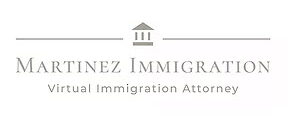Immigration Waivers and Pardons

Immigrants living in the U.S. might desire permanent resident status, but their violation of immigration laws renders them inadmissible. Immigration waivers and immigration pardons, which are virtually synonymous, allow these immigrants to obtain mercy from a court for certain violations.
An immigration attorney specializing in waivers at Martinez Immigration can help you file the necessary forms, collect evidence, and represent you in court.
Book a virtual consultation with Martinez Immigration to ensure your application for a provisional waiver goes as smoothly as possible.
Types of Waivers
Inadmissibility waivers
A U.S. citizen or permanent resident legal spouse, fiancée, or parents of the applicant can file Waiver I-601, the Application for Waiver of Grounds of Inadmissibility. You must submit evidence showing establishing a family relationship and proof that your qualifying relative would experience extreme hardship if your admission was denied. The qualifying relative is the U.S. citizen or permanent resident who filed the immigration petition.
Provisional waivers
Immigrant visa applicants who are the spouse, children, or parents of U.S. citizens may apply for Provisional Unlawful Presence waivers. The applicant must be physically present in the U.S. and be in the process of obtaining an immigrant visa.
Factors Affecting the Approval of Waivers and Pardons
The majority of factors affecting waiver approval revolve around the condition of the applicant’s qualifying relative. That is the U.S. citizen or permanent resident who filed the immigration petition.
The decision regarding an extreme hardship waiver is based on the totality of the circumstances. Considerations include family ties, especially caregiving for children, elderly, or disabled qualifying relatives in the U.S. The economic impact on the qualified relative if the applicant is denied admission is another factor.
Book a virtual consultation with Martinez Immigration to ensure your application for a provisional waiver goes as smoothly as possible.
If the applicant suffers from certain health conditions and the country to which they would return lacks the quality and availability of required medical treatment, they may prove eligible for a waiver.
If the qualifying relative is currently serving in the U.S. military, the applicant’s removal could impair their ability to serve. Reservists might be unable to respond quickly to active duty. Because the situation affects military preparedness, denying admission to the applicant may constitute extreme hardship.
Strategies for a Successful Waiver Application
A successful waiver application depends on firmly linking the hardship to the qualifying relative that would occur due to the applicant’s absence. For instance, the applicant must show why the qualifying relative cannot move abroad with them or remain in the U.S. without the applicant.
An immigration lawyer must examine the totality of the circumstances in the client’s case and make the argument for extreme hardship. They must tie all evidence into a cohesive, succinct narrative.
The official making the decision has only a limited amount of time to review the case. A well-written, easy-to-understand brief means the official can act readily, without having to decode the argument.
Book a virtual consultation with us to get started. It’s the best first step towards gaining legal residency.
Hiring the Right Immigration Attorney
If you are applying for a waiver or a pardon and are at risk of deportation or removal, success can depend on hiring the right immigration attorney. Turn to the immigration law services at Martinez Immigration. We can help you during this difficult time.
Schedule a virtual consultation today.
We got you covered!
No Matter What your immigration needs or questions are…
We take great pride in providing immigration services to our clients. Our mission to reunite families drives us to succeed.


